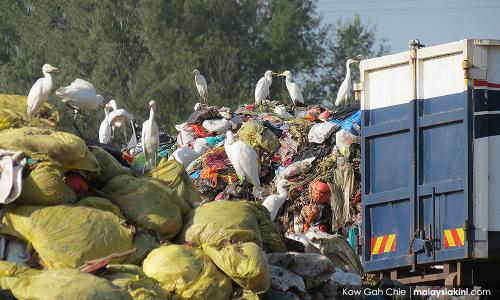LETTER | All states should adopt Act 672
LETTER | Currently, there are still several states which have not yet adopted Solid Waste and Public Cleansing Management Act 2007 (Act 672).
This act makes it compulsory for solid waste separation at source, with each household and business owner separating their waste into two groups, which are “recyclable” and “residual” at their respective premises.
Recyclable wastes include paper, plastics, glass, aluminium cans, iron, metal, electronic waste, and textile waste, whereas residual waste includes dirt and food waste.
Those remaining states should adopt Act 672 as soon as possible as it is vital to the protection of public health as well as the environment in the country.
The negative consequences of not having a system for solid waste separation at the source include:
Deterioration of public health from exposure to waste that contains toxic elements and those that are non-biodegradable which can cause diseases such as skin irritation, growth problems, etc.
Pollution of water sources due to leakage of waste from landfills into nearby rivers. This in turn damages the ecosystem and threatens the aquatic life in those water sources. Besides that, local communities dependent on those water sources will be exposed to various types of dangerous diseases.
Air pollution due to harmful waste management practices such as open burning, which releases greenhouse gases like carbon dioxide and carbon monoxide.
Soil pollution due to the leakage of chemical substances from toxic waste into the earth which in turn deteriorates the soil’s fertility.
Landfill constraints because the available landfill sites are not capable of accommodating the ever-increasing amount of solid waste.
The importance of having a system for solid waste separation at source:
1. Reduces the amount of waste sent to landfills.
2. Prevents disposal of recyclable materials, thus increasing recycling rates.
3. Improves public health
Reduces the amount of waste that is toxic and non-biodegradable as well as ensures safer, more effective management of such waste.
The separation of recyclable containers will prevent the issue of water stagnation in such containers which can be a breeding ground for infectious mosquitoes.
4. Reduces environmental pollution and deterioration.
5. The Waste to Energy (WTE) process can be implemented throughout the country, in which energy is recovered from non-recyclable waste materials by converting them into usable heat, electricity, or fuel through a variety of processes.
6. The organic waste can be reused for composting and fertilisation purposes.
7. Protects the health of workers who are directly handling the waste.
Having a system for solid waste separation at source is vital to the protection of public health as well as the environment in the country.
Therefore, the federal government should urge the remaining states which haven’t yet done so to adopt Act 672 as soon as possible so that the system for solid waste separation at source is implemented nationwide.
The views expressed here are those of the author/contributor and do not necessarily represent the views of Malaysiakini.
RM12.50 / month
- Unlimited access to award-winning journalism
- Comment and share your opinions on all our articles
- Gift interesting stories to your friends
- Tax deductable
